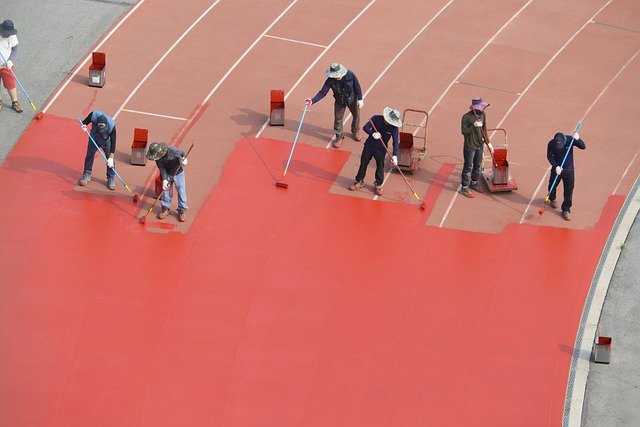Stadium Cleaning Crews Explained : Understanding the Work That Keeps Stadiums Clean
Stadium cleaning crews perform essential work that transforms massive sports and entertainment venues from post-event chaos to pristine facilities ready to welcome thousands of new visitors. These specialized teams combine strategic planning, advanced equipment, and systematic approaches to maintain cleanliness and safety standards in some of the world's largest public spaces.

The Vital Role of Stadium Cleaning Crews
Stadium cleaning crews serve as the backbone of venue operations, managing facilities that can accommodate anywhere from 20,000 to over 100,000 spectators. Their responsibilities extend beyond basic cleaning to include waste management, sanitization, and facility preservation. After major events, crews typically have 24-48 hours to restore venues to their original condition, working through multiple shifts to meet strict deadlines and health regulations.
The Specialized Skills of Stadium Cleaning Workers
Professional stadium cleaners require specific expertise that sets them apart from conventional cleaning staff. These skills include operating industrial cleaning equipment, understanding different surface treatment protocols, and managing hazardous waste disposal. Workers must also demonstrate knowledge of safety procedures, crowd management techniques, and emergency protocols while working in large-scale environments.
Technology and Innovation in Stadium Cleaning
Modern stadium maintenance relies heavily on technological advancement. Industrial-grade equipment such as ride-on sweepers, pressure washers, and automated scrubbing machines enable crews to clean vast areas efficiently. Smart scheduling software helps coordinate team movements, while IoT sensors monitor cleaning needs in real-time, optimizing resource allocation and ensuring thorough coverage of all areas.
Environmental and Safety Protocols
Stadium cleaning crews must adhere to strict environmental and safety guidelines. This includes proper disposal of various waste types, using eco-friendly cleaning products, and maintaining OSHA-compliant safety practices. Teams also implement specific protocols for different weather conditions and various surface types, from artificial turf to concrete concourses.
Training and Certification Requirements
Professional stadium cleaners undergo comprehensive training programs covering equipment operation, chemical handling, and safety procedures. Many facilities require certifications in areas such as OSHA safety standards, biohazard cleaning, and specialized equipment operation. Ongoing training ensures crews stay current with evolving industry standards and new cleaning technologies.
Industry Standards and Compensation
| Position Level | Average Annual Salary | Typical Benefits |
|---|---|---|
| Entry Level Cleaner | $25,000 - $30,000 | Basic health insurance, paid time off |
| Lead Cleaner | $32,000 - $40,000 | Full benefits package, overtime pay |
| Supervisor | $45,000 - $55,000 | Comprehensive benefits, management bonuses |
Prices, rates, or cost estimates mentioned in this article are based on the latest available information but may change over time. Independent research is advised before making financial decisions.
Stadium cleaning represents a specialized sector within the facility maintenance industry, combining physical labor, technical expertise, and strategic planning. These crews work behind the scenes to ensure venues maintain high standards of cleanliness and safety, contributing significantly to the overall experience of event attendees and the longevity of stadium facilities.




